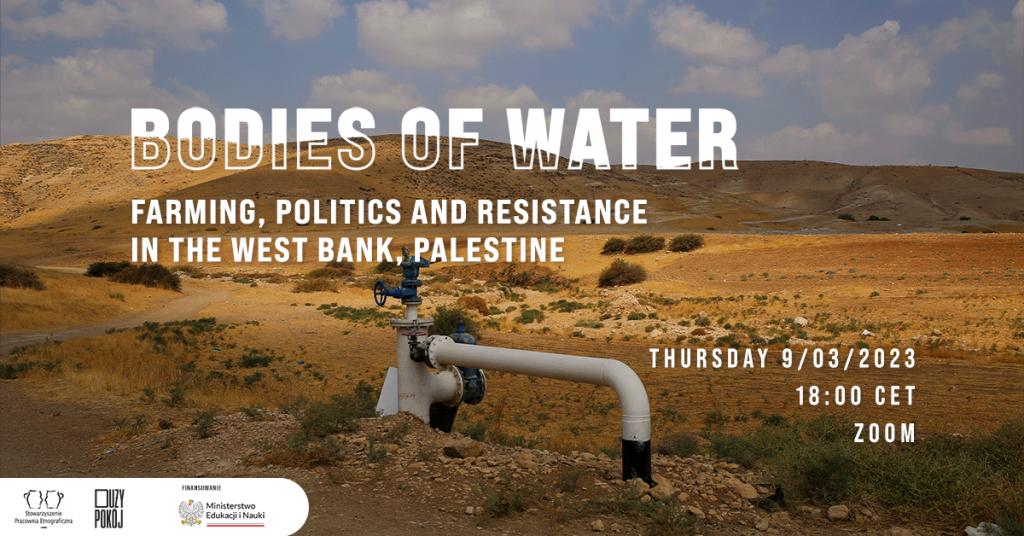Bodies of Water. Farming, politics and resistance in the West Bank, Palestine

Thursday 9/03/2023 18:00 CET
Online – ZOOM
What is it like to grow dates and mulukhiyah herbs when you are a palestinian farmer in the Jordan Valley? This land is stunningly fertile, but access to water is a political issue here. Rashed Khudairya farmer and activist from the village of Bardala (Palestine) will share his perspective on the problems of access to water and other restrictions experienced by local communities living in the Jordan Valley. A member of a Palestinian-led grassroot movement „Solidarity with the Jordan Valley” will not only talk about the broader context of the West Bank, but will also provide insight into the situations of specific villages and families who are part of the movement.
The meeting will be held on the ZOOM platform. We ask you to complete a short form and provide an e-mail address to which we will send the appropriate link before the event.
Our guests:
Rashed Khudairy, Coordinator of Jordan Valley Solidarity Campaign
My family left the village of Bardala in the north of the Jordan Valley 35 years ago, because of the Israeli forces’ occupation and closure of the Valley. My family had worked the land and herded cattle for generations on this land, but theft of the water by the Israeli occupation made these traditional activities impossible. A year ago my family decided to return to the village of Bardala to launch an agricultural project and build a house where they could once again live in the village. We built a fence around the agricultural land to protect the farm and then bought some water from other local Palestinians to irrigate the land. The next stage will be to install some water pipes. We are also working on the return of all the displaced families to create a sustainable future in their homes in this area of the Jordan Valley.
Pavel Borecky, social anthropologist
I am a documentary filmmaker, social anthropologist and development specialist, active at the intersection of arts, sciences, activism and sustainability. I am a co-founder of Anthropictures and a fellow of Walter Benjamin Kolleg, University of Bern. In 2020, I finished the first feature documentary on the unfolding water crisis in Jordan, LIVING WATER.
Anna Paluszek – holds a PhD in Social and Political Science from the Nicolaus Copernicus University in Poland focusing on German Muslim organisations and their political subjectivity, defined as a process between identity politics, public discourse, and immigration policies that affect the scope of activity for those groups. In the last ten years, Anna has spent extensive time in Palestine working as a researcher and project coordinator for various organizations and institutions, including Polish Humanitarian Action, Polish Center For International Aid, International, The World Bank Group, UNICEF and NORC at Chicago University. She specializes in a wide realm of qualitative research methods that she employed over the years to look at human rights issues, global education, sustainable development, and minority groups in public discourse.
moderator of the meeting:
Krystyna Jędrzejewska-Szmek
artist and biologist, participating in the residency program The Everyday Forms of Resistance organized by Ujazdowski Castle Centre for Contemporary Art in cooperation with the municipality of Ramallah in Palestine.
Dofinansowano z programu „Społeczna odpowiedzialność nauki” Ministra Nauki i Szkolnictwa Wyższego.
